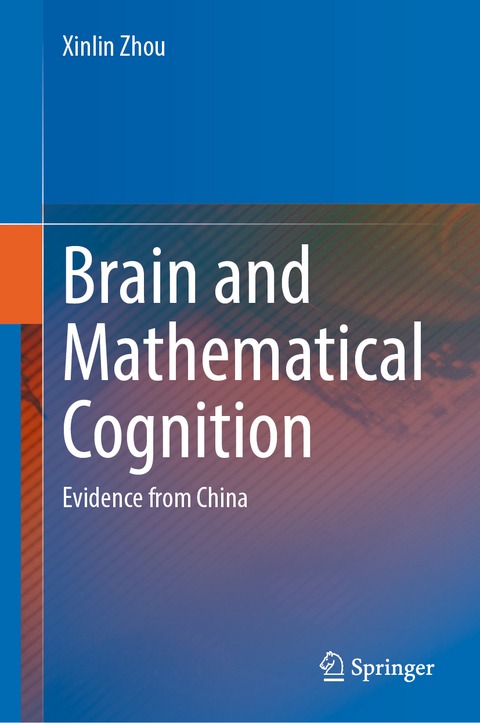
Brain and Mathematical Cognition
Springer Nature (Verlag)
978-981-97-3762-8 (ISBN)
- Titel nicht im Sortiment
- Artikel merken
This book intends to present a series of insights coming from in-depth investigation of brain and mathematical cognition in Chinese population. Specifically, the book introduces research on the associations among number sense, visual form perception and mathematical fluency; symbolic and non-symbolic mental number line; and the role of spatial modeling and logical inference in mathematical problem solving. The book summarizes author's previous studies on the involvement of semantic network other than visuospatial network in mathematical cognition. The three-component mathematical model that comes out of more than 10 years of research on mathematical cognition is introduced. The book presents the effect of learning experience on arithmetic-related brain system. Chinese abacus that can be used to eradicate developmental dyscalculia in classroom is briefly discussed. Special attention in this book is paid to mathematical anxiety and mathematical learning disorders in Chinese schoolchildren. Finally, gender differences in mathematical cognition are also reviewed.
Dr. Xinlin Zhou is a professor from State Key Laboratory of Cognitive Neuroscience and Learning, Faculty of Psychology, Beijing Normal University. Prof. Zhou’s research focuses on mathematical cognition. He has published more than 100 research articles in this field.
Chapter 1. Numerosity Sense and Mathematical Achievement.- Chapter 2. Spatial Representation for Symbolic Numbers and Numerosity.- Chapter 3. Experience Shapes the Arithmetic Brain.- Chapter 4. Cognitive Correlate for Mathematical Problem Solving: Spatial or Logic?.- Chapter 5. Developmental Spatial Model in One-Step Math Word Problem Solving.- Chapter 6. The Semantic Network Supports Mathematical Processing.- Chapter 7. Three-Component Mathematics Education.- Chapter 8. Gender Difference in Mathematics.- Chapter 9. Preschoolers’ Mathematics.- Chapter 10. Form Perception Deficit in Chinese Children with Developmental Dyscalculia.- Chapter 11. Abacus in Mathematics Education.- Chapter 12. Mathematics Anxiety.
| Erscheinungsdatum | 03.08.2024 |
|---|---|
| Zusatzinfo | 53 Illustrations, color; 61 Illustrations, black and white; Approx. 200 p. 30 illus., 15 illus. in color. |
| Verlagsort | Singapore |
| Sprache | englisch |
| Maße | 155 x 235 mm |
| Themenwelt | Geisteswissenschaften ► Psychologie ► Allgemeine Psychologie |
| Geisteswissenschaften ► Psychologie ► Verhaltenstherapie | |
| Geisteswissenschaften ► Sprach- / Literaturwissenschaft ► Sprachwissenschaft | |
| Medizin / Pharmazie ► Studium | |
| Naturwissenschaften ► Biologie ► Humanbiologie | |
| Naturwissenschaften ► Biologie ► Zoologie | |
| Schlagworte | Mathematical brain • Mathematical Cognition • mathematics education • Numerical processing • Verbalized mathematics |
| ISBN-10 | 981-97-3762-1 / 9819737621 |
| ISBN-13 | 978-981-97-3762-8 / 9789819737628 |
| Zustand | Neuware |
| Haben Sie eine Frage zum Produkt? |
aus dem Bereich


